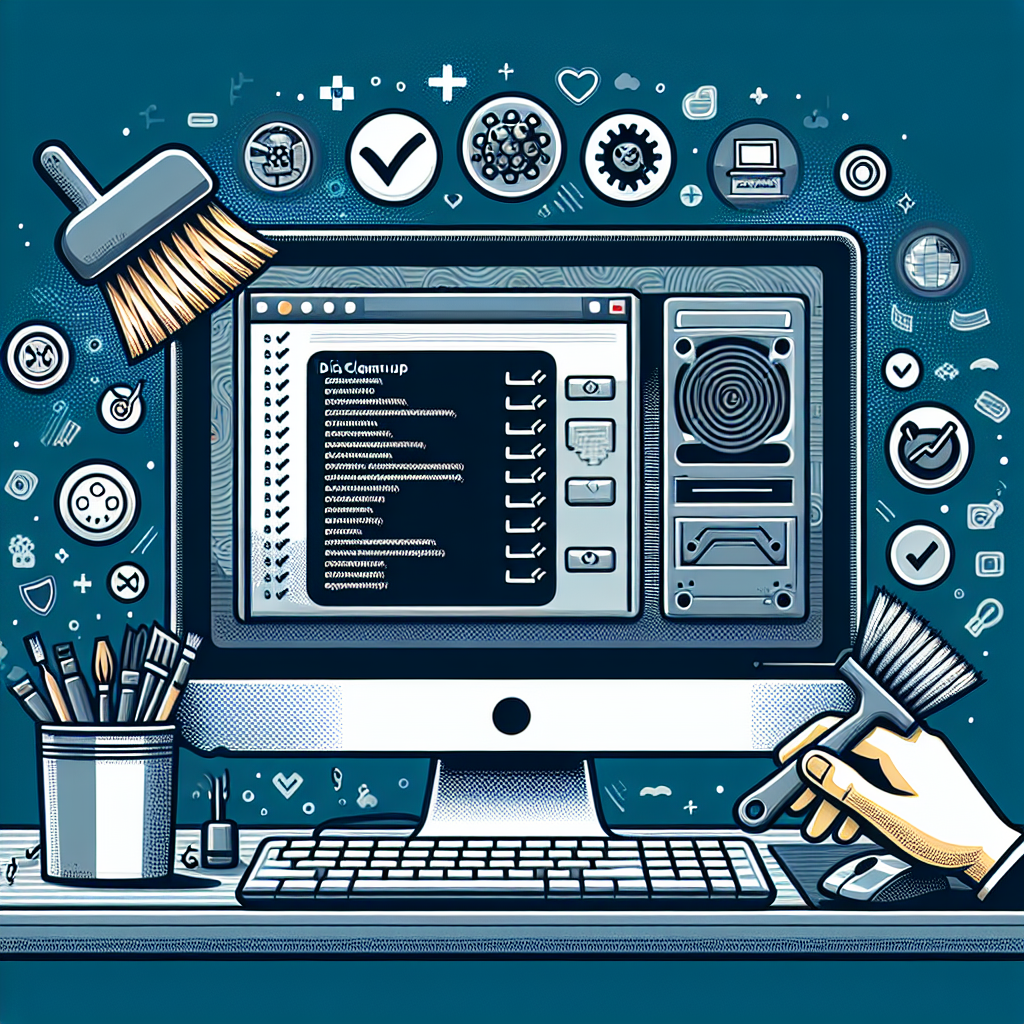Introduction
Is your computer running slower than usual? Are you constantly encountering errors or system crashes? Luckily, you don't have to spend a fortune to get your computer back in shape. In this guide, we'll walk you through free methods to clean up your computer and fix common issues.
Table of Contents
- Understanding the Common Problems
- Cleaning Up the Hard Drive
- Optimizing System Performance
- Fixing Software Issues
- Using Free Tools
- Keeping Your Computer Clean
Understanding the Common Problems
Before diving into solutions, it's crucial to understand the common problems that can affect your computer's performance. Here's a quick overview:
| Problem | Description |
|---|---|
| Slow Performance | Programs take longer to start, and overall system speed is reduced. |
| System Crashes | Computer unexpectedly shuts down or restarts. |
| Error Messages | Frequent pop-ups indicating various system errors. |
| Unresponsive Applications | Apps freeze or don't respond to user commands. |
Cleaning Up the Hard Drive
One of the first steps to speed up your computer is cleaning up your hard drive. Over time, your system accumulates a lot of unnecessary files that can take up valuable space. Here's how to clean it up:
Delete Temporary Files
Temporary files, such as internet cache and system logs, can consume a significant amount of space. Use the built-in Disk Cleanup tool to remove these files. Follow these steps:
- Press Windows + R to open the Run dialog box.
- Type cleanmgr and hit Enter.
- Select the drive you want to clean.
- Check the boxes next to the file types you want to delete, then click OK.
Uninstall Unnecessary Programs
Old and unused programs can slow down your PC. To uninstall these programs:
- Open Control Panel.
- Go to Programs > Programs and Features.
- Select the program you want to uninstall and click Uninstall.
Delete Large Files
Large files, such as videos and ISO images, can take up a lot of space. Use a tool like WinDirStat to find and delete these files.
Optimizing System Performance
System optimization can significantly enhance your computer's performance. Here are some free ways to optimize:
Adjust Startup Programs
Too many startup programs can slow your computer. To manage these programs:
- Press Ctrl + Shift + Esc to open Task Manager.
- Go to the Startup tab.
- Disable programs you don't need at startup.
Update Drivers
Outdated drivers can cause system slowdowns. To update them:
- Press Windows + X and select Device Manager.
- Right-click the device and select Update driver.
Fixing Software Issues
Software issues can cause significant problems if left unresolved. Here are some ways to fix common software issues:
Run System File Checker
The System File Checker can repair missing or corrupted system files:
- Open Command Prompt as an administrator.
- Type sfc /scannow and hit Enter.
- Wait for the process to complete.
Reinstall Problematic Software
If a specific program is causing issues, try reinstalling it:
- Uninstall the program through Control Panel.
- Download the latest version from the official website.
- Install the program again.
Use Malware Scanners
Malware can cause serious software problems. Use free tools like Malwarebytes to scan and remove malware:
- Download and install Malwarebytes.
- Run a full system scan.
- Follow the on-screen instructions to remove any detected threats.
Using Free Tools
There are several free tools available that can help clean up your computer and fix problems:
CCleaner
CCleaner is a popular tool that cleans registry, removes junk files, and optimizes startup programs.
AVG TuneUp
AVG TuneUp offers similar features to CCleaner but also includes automatic maintenance options.
Defraggler
Defraggler, from the makers of CCleaner, is a tool for defragmenting your hard drive to improve performance.
Keeping Your Computer Clean
Maintaining your computer involves regular cleanups and updates. Here are some tips:
Regularly Update Software
Always keep your software up-to-date to fix bugs and improve performance.
Perform Regular Scans
Set a schedule for regular scans using your antivirus and malware removal tools.
Backup Important Data
Regularly backup your important data to avoid data loss in case of system failure.
Conclusion
By following these tips and using free tools, you can clean up your computer and fix common problems without spending any money. Regular maintenance will ensure your computer runs smoothly and efficiently.

